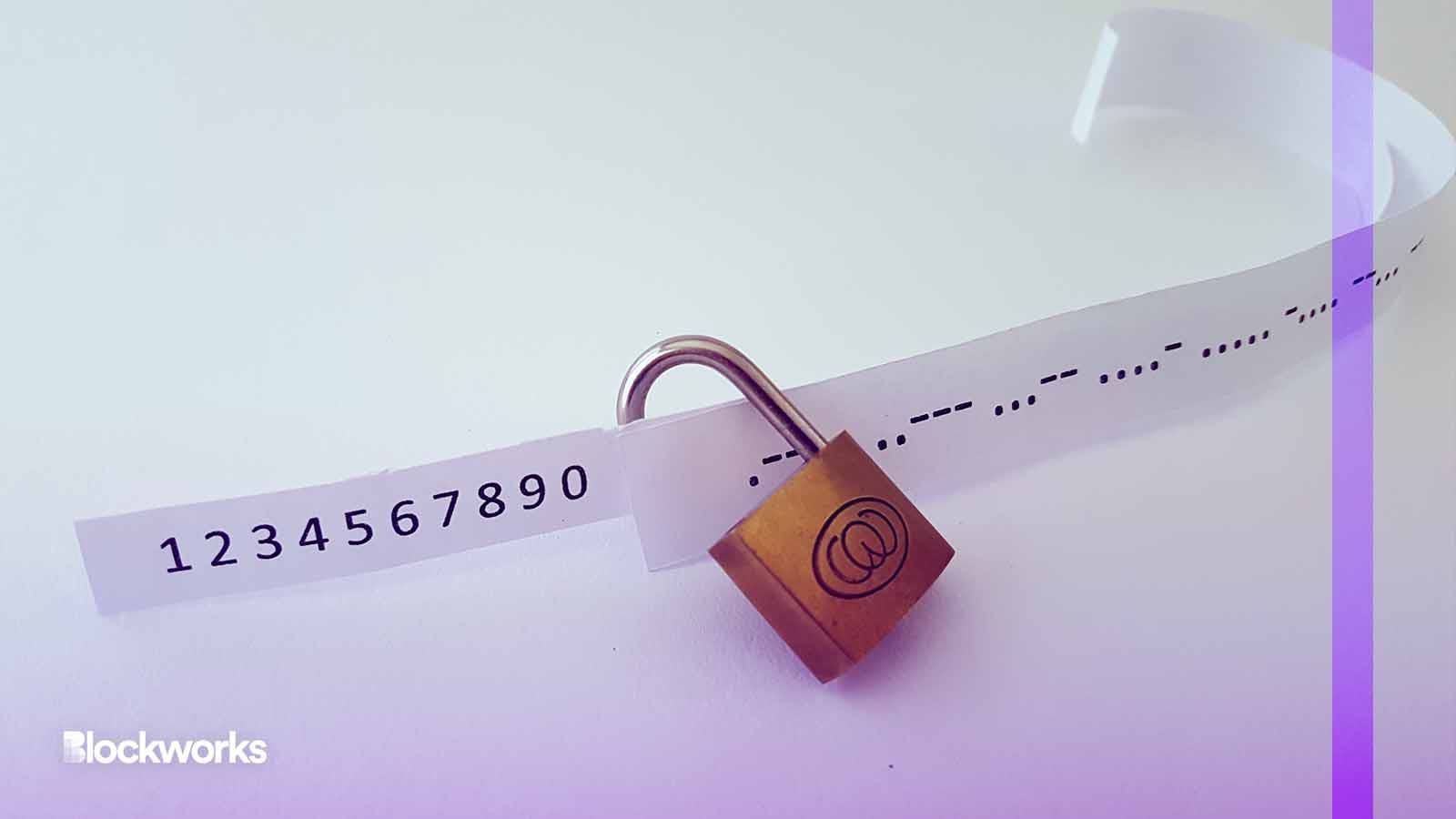Fairblock raises $2.5M for fully private blockchain transactions
The Fairblock team has recently secured $2.5 million from investors to bring conditional encryption to blockchains

LoudPhoto/Shutterstock modified by Blcokworks
Fairblock is hoping to make conditional decryption and pre-execution privacy a reality.
Conditional decryption refers to allowing users to set conditions that enable protocols to execute transactions without revealing any on-chain information before execution.
Unlike zero-knowledge (ZK) technology, Fairblock is designed so that information is only encrypted or decrypted under certain conditions.
It does so through advanced cryptography, including identity-based encryption and witness encryption. The company is also looking into fully homomorphic encryption, or FHE, which will enable computations to be performed on fully encrypted data.
Peyman Momeni, Fairblock’s co-founder, told Blockworks that the team had secured $2.5 million in pre-seed funding to build this infrastructure.
The funding round was led by Galileo and saw participation from Lemniscap, Dialectic, Robot Ventures, GSR, Chorus One, Dorahacks, and Reverie, just to name a few.
“Applications like sealed-bid auctions, randomness generation, private governance, encrypted limit orders, all these kinds of ideas can be built on top of our infrastructure using our cryptographic libraries,” Momeni said.
Read more: Blockframe using sealed bid auctions for NFT price discovery
Momeni notes that Fairblock’s goal is to lower risks for average crypto users, adding that there are still many issues with transactions being front-run or having the contents of a transaction leaked, creating a market skewed to favor people with financial knowledge or development experience.
“We want to build something that gives the freedom to users to optionally keep their transactions and protect the contents of the transactions. Transactions can be decrypted under certain conditions, such as a deadline or specific prices,” he said.
What this would look like in practice, Momeni explains, would be an SDK that is integrated with the front end of applications that choose to use Fairblock.
In a governance proposal, for example, users can submit their votes as usual but have an extended toggle function, enabling them to encrypt their votes.
“If their transaction is encrypted, it will go through that normal process, hit the mempool of the blockchain as usual, and votes that are not encrypted will be included as plaintext…both of these will be aggregated until the deadline or other conditions are met, and we will generate a single decryption key using identity-based encryption,” Momeni said.
He noted that the purpose of Fairblock in this particular scenario would be to act as a service provider that enables the generation of keys under certain conditions.
Fairblock has been built using the Cosmos SDK, but is not limited to just the Cosmos ecosystem, Momeni said.
“You can think of us as an Axelar or an oracle for providing decryption keys to consumer chains — which could include a rollup or a smart contract, so even though we are in Cosmos, we can include their transaction and send it to a smart contract on Ethereum,” he said.
The blockchain has recently upgraded to a second private testnet with a public testnet imminent.
Get the news in your inbox. Explore Blockworks newsletters:
- The Breakdown: Decoding crypto and the markets. Daily.
- Empire: Crypto news and analysis to start your day.
- Forward Guidance: The intersection of crypto, macro and policy.
- 0xResearch: Alpha directly in your inbox.
- Lightspeed: All things Solana.
- The Drop: Apps, games, memes and more.
- Supply Shock: Bitcoin, bitcoin, bitcoin.






